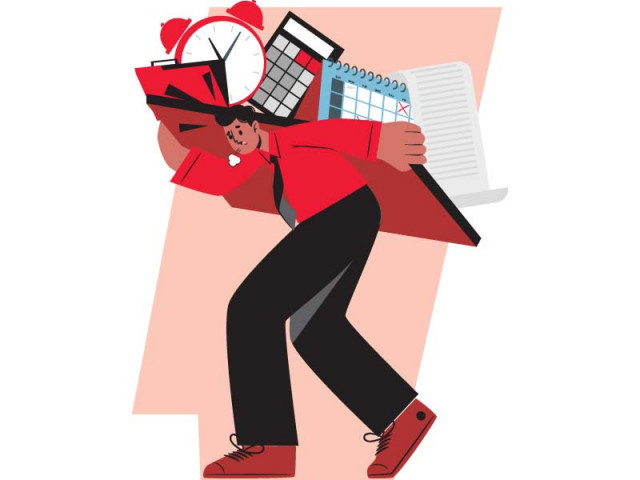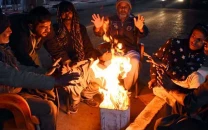Part-time jobs exhaust low-income groups
Blue, white collared workers overloading work schedules to earn extra money

With the current spell of inflation leaving many workers with empty wallets towards the end of the month, part-time jobs have started gaining immense popularity among the low-income groups however, the trend comes at a hefty price for the overworked workers who in the pursuit of gaining extra cash are losing their health.
As the economic difficulties faced by citizens continue their course given the high level of inflation in the country, a large number of workers have started taking up extra work outside of their primary employment in the service, transport and food business sectors, with the aim of getting some supplementary income on their hands after paying their bills, however, the accompanying long, consecutive hours of work have taken a toll on the physical well-being of both white collared and blue collared workers.
Naz, a factory worker from the Punjab Colony with seven family members to support, sews clothes at a small factory for eight hours a day. “These days it is impossible to run the house with a single job therefore I work as a domestic worker in the evening hours after my day job. While I do make more money, two jobs have left me exhausted and have impacted by efficiency, “ shared Naz, who earns up to Rs10,000 per month extra from her part-time job.
Similarly, Ahsan, an assistant accountant at a company in the Bolton Market, also could not support a family of five with one job alone. “With a monthly salary of Rs26,000, how can I fulfil our monthly expenditures. Therefore, I have started working as a part-time transportation app rider,” revealed Ahsan, who went on to add that countless young people like him, were engaged in part-time work across various sectors.
According to Abdul Hafeez Pasha, the former federal minister, the grave economic situation in the country has left nine to 10 per cent of the population unemployed while pushing approximately 11 to 11.5 million people below the poverty line. “As a result, people are increasingly turning to part-time employment to augment their income and manage their expenses,” highlighted Pasha.
Seconding Pasha, Abid Hussain, an economist emphasized that many people were grappling with high living expenses while their income sources remained limited. “Rising utility bills, transportation costs, healthcare expenses, and other financial burdens are causing distress among the populace, leading to demands for higher salaries,” explained Hussain who further highlighted the need for comprehensive short, medium, and long-term policies aimed at bolstering the country’s economy, stimulating investment, and generating employment opportunities.
On the other hand, medical experts like Dr Muhammad Farooq Khan expressed their concerns for the well-being of the workers who are engaged in dual employment. “Unfortunately, in the pursuit of extra earnings, people often neglect their dietary needs and forego rest. This neglect can overtime lead to fatigue, high blood pressure, and other health issues,” cautioned Dr. Khan who urged people to strike a balance between work and self-care.
Speaking to the Express Tribune on the matter, the caretaker local government minister, Mubeen Jumani said, “The federal and caretaker governments of Sindh are dedicated to improving the country’s economic situation, with a focus on controlling inflation. We hope that the benefits of these fiscal measures will soon be felt by the people.”
Published in The Express Tribune, October 24th, 2023.



















COMMENTS
Comments are moderated and generally will be posted if they are on-topic and not abusive.
For more information, please see our Comments FAQ